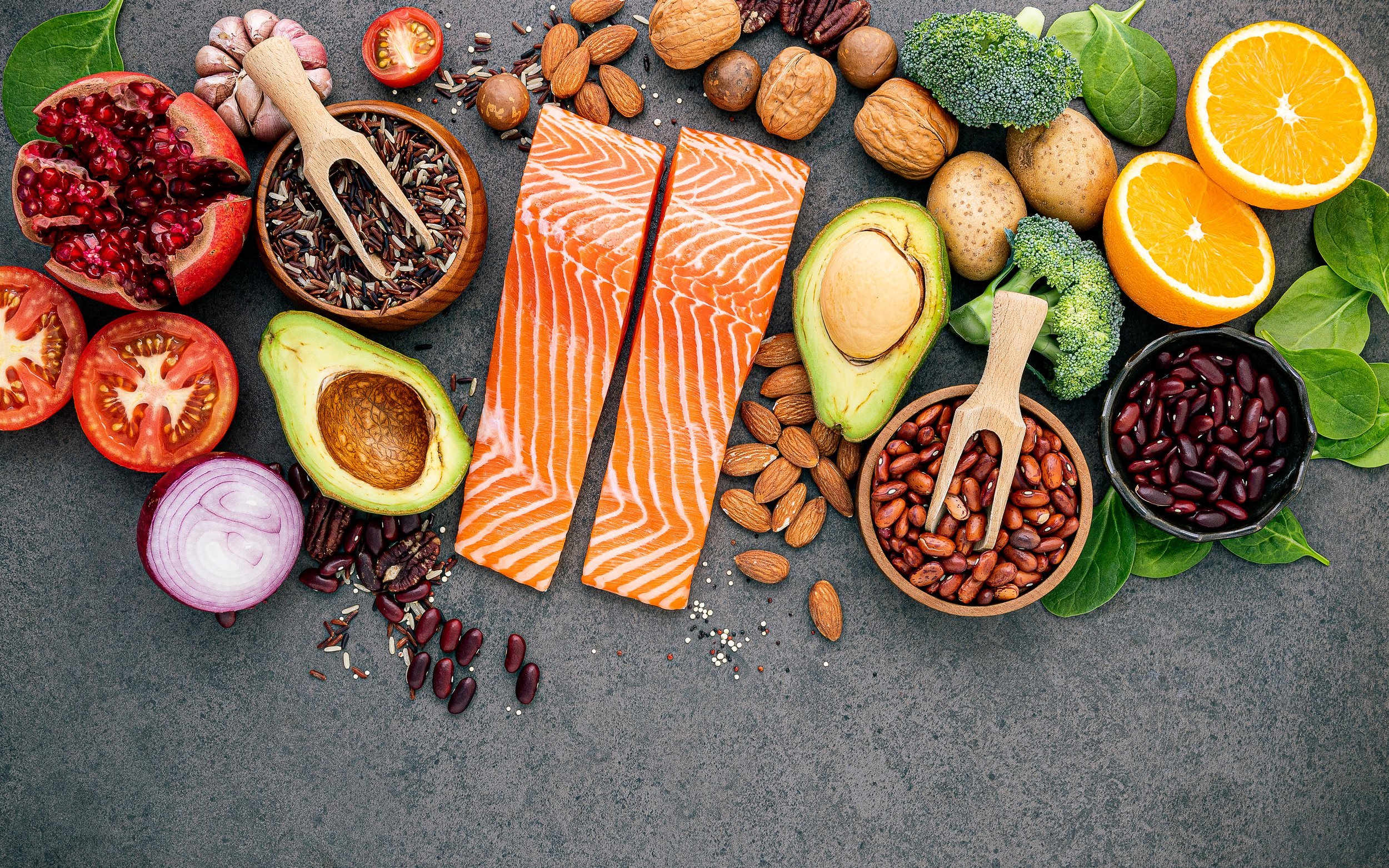
Nutritional Therapy
Nutritional therapy is a key component of a neuro rehabilitation program, as it supports brain health, healing, and overall recovery. Here's an outline of how nutritional therapy fits into neuro rehab.
Key components of nutritional therapy in this context include:
-
Supporting Brain Function and Recovery
Omega-3 Fatty Acids:
Essential for maintaining brain cell structure and function. Found in fatty fish, flaxseeds, and walnuts, omega-3s help improve cognitive function and neuroplasticity (the brain's ability to reorganize and form new connections).Antioxidants:
Vitamins C and E, as well as flavonoids, protect the brain from oxidative stress and inflammation, common after neurological injury or stroke. These can be found in fruits, vegetables, and nuts. -
Promoting Neuroplasticity
B Vitamins:
Critical for nerve function and regeneration, B vitamins (especially B6, B12, and folate) help with neurotransmitter production and myelin repair, which are vital for nerve signal transmission and recovery.Amino Acids and Proteins:
Essential for neurotransmitter synthesis and tissue repair. Protein-rich foods (like lean meats, legumes, and dairy) support muscle function, which can aid in motor skill recovery post-injury. -
Enhancing Energy and Muscle Function
Carbohydrates:
Provide energy for the brain and muscles, which is particularly important for those undergoing intense physical rehabilitation. Complex carbohydrates like whole grains, vegetables, and fruits are recommended for sustained energy.Electrolytes:
Important for muscle contraction and nerve function. Maintaining electrolyte balance (sodium, potassium, magnesium) supports movement and reduces fatigue, especially in cases of motor impairments. -
Reducing Inflammation
Anti-inflammatory Foods:
Chronic inflammation can hinder neuro recovery. Nutritional therapy includes foods with anti-inflammatory properties like turmeric (curcumin), ginger, berries, and green leafy vegetables to help manage inflammation in the brain and body. -
Managing Swallowing and Digestive Issues
Texture Modifications:
For patients with swallowing difficulties (dysphagia), adjusting food texture and ensuring adequate hydration is crucial for safe and effective nutrition intake.Digestive Support:
Neuro conditions often affect digestion and gut health. Probiotics and fiber-rich foods help support a healthy gut, which in turn can improve overall well-being and nutrient absorption. -
Supporting Immune Function
Vitamins and Minerals:
Nutritional therapy ensures the patient gets adequate vitamins (e.g., vitamin D, zinc) and minerals that are essential for immune function, helping to prevent infections and other complications that could delay recovery. -
Optimizing Overall Health and Well-being
Balanced Diet:
A well-rounded, nutrient-dense diet supports general health, helping patients maintain their weight, reduce comorbidities (such as hypertension or diabetes), and improve their ability to engage in rehabilitation activities.Hydration:
Adequate hydration is vital for maintaining cognitive function, circulation, and physical performance, particularly during exercise or therapy sessions. -
Tailored Plans for Individual Needs
Personalized Nutrition Plans:
Nutritional therapy in neuro rehab is tailored to address specific deficiencies, preferences, and medical conditions (e.g., stroke, traumatic brain injury, or Parkinson’s disease), making sure the nutrition strategy supports the individual’s unique recovery journey.
